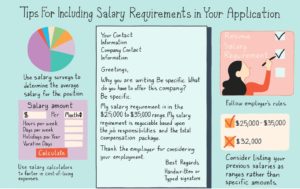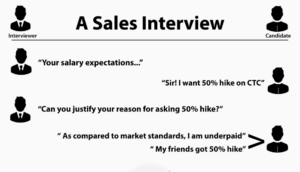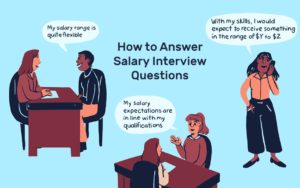
What is your salary expectation? – The best answer to this question in your next interview?

Salary expectation – The best answer to this question in your next interview.The best way to deal with a favourable revert form the employee on the Salary expectation questions.

“What is your salary expectation?”

When a job candidate hears the question from a recruiter, the query may sound like a neutral request. But in fact, how you answer it will be the beginning of your salary negotiation for that job role.
There is a long debate about the best way to address this tricky question. Some people suggest skipping it, while others suggest it’s OK to give a salary range. In this article, we are discussing what to do when you face this situation.
What is the salary expectations query really about?

What a firm is really trying to find out is if you are in the same salary range as they are. Whatever you do, get prepared to address this common question. There are two times when hiring managers will ask about your salary expectations. First one is often right away. And the second is often right before you get the job offer. The recruiters are trying to get you to make it easier for them.
- If you do answer it with a number, make it a salary range
Answer this question with a salary range after conducting fine research. The salary expectations answer can be contextual. Analyse where you are standing in your career and what kind of industry you are working in.
Most senior professionals know what their market value is. And they have strong opinions about what their base pay needs to be for them to take the job. If you really have a strong perspective, be general with your specific ask. That way, you don’t commit to any number, and there can be flexibility.
To get a clear idea of what a reasonable salary range is, you can and should ask your colleagues about typical starting salaries for the role you are applying for. The more you discuss with people, the better off you are.
You can also do online research to land on a specific salary range. The most critical thing is to have a business case behind why you choose the range of salary that you do. It is better to start your salary range directly in response to the salary expectation query. If you allow them to give a number, they will anchor the conversation, and they will offer you a low payment.
- How to answer without stating a particular salary number
If you are a job seeker who does not want to state a particular salary range, you have options. For instance, you can say you will engage but at a later stage.
If you are asked point-blank by a hiring manager, you can say something like I am delighted to talk about it once there is an offer. Or that would totally depend on what the exact role is. You can say it as long as you are in an industry where there is not an expectation for you to answer.
If you are talking to a recruiter, you can state that you don’t want to talk about it. Your language can sound like: I prefer to concentrate on the value that I bring to your firm. I would like to mark job this as a big step ahead in terms of both responsibility and compensation. I do not prefer to talk about my salary expectations. And I don’t have an exact number in mind. And I look forth to hearing from you about what you think if we get to that stage.
- Turn the question back on the interviewer
The purpose is to show that you are flexible with your salary expectations answer. Another tactic is to turn the query back on the recruiter. You can ask them about salary ranges before you mention yours.
If you have done your homework well, you can use numbers in your answer. You can say like, according to my research, this job gets paid between X and Y. Is that compatible with the hiring range for this job role? This kind of answer shows that you are really trying to work with them to understand if you are in the same ballpark.
If you aren’t confident in your research, you can phrase the follow-up question politely as, without knowing more about the job entails and not knowing what the total compensation picture is, I would love to hear what your hiring range is.
The goal isn’t to engage about a number but to learn what a company is thinking about the salary first. Your whole goal here is to defer to them to make the first offer so you can see approximately where they value you.
- Salary expectations aren’t the same as the final job offer
Recognise that this discussion is the beginning of salary negotiation, not the end of it. If you learn new information about the job role later, you should feel empowered to ask them for a salary that is more aligned with those responsibilities.
Even if you get a lower ballpark range, you can adjust it upward later. But this is conditional only if you learned any new information about the job role or responsibilities. And you can make an argument for getting more work.




